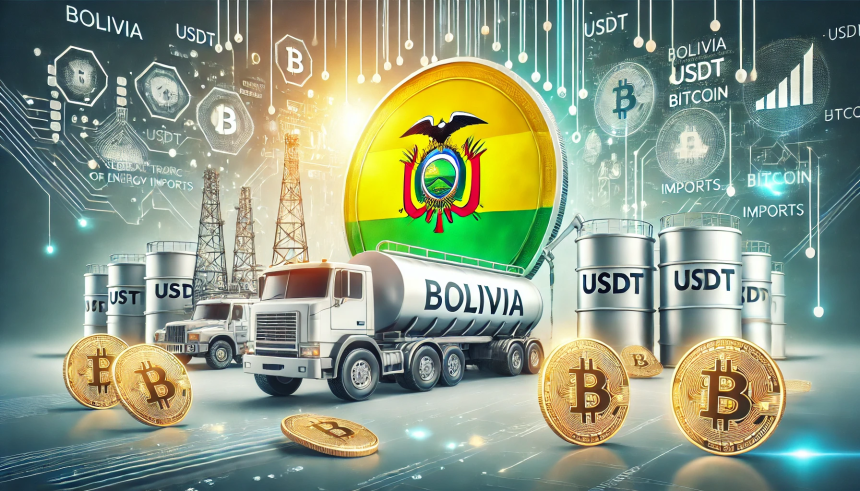Introduction
Bolivia has made a groundbreaking decision to adopt cryptocurrency for energy imports.
This comes amid a severe shortage of U.S. dollars and growing economic pressures.
The move marks a significant shift for the country’s economy, especially in dealing with global trade partners.
Why Is Bolivia Turning to Cryptocurrency?
Bolivia has been facing a dollar liquidity crisis, limiting its ability to pay for essential imports like fuel.
International suppliers often demand payment in dollars, but the country’s reserves are dangerously low.
Cryptocurrency offers an alternative payment method, bypassing traditional banking channels.
How Will the System Work?
Bolivia’s state-owned oil company, YPFB (Yacimientos Petrolíferos Fiscales Bolivianos), will use cryptocurrency to pay foreign fuel suppliers.
Payments will be processed through regulated platforms, ensuring compliance with anti-money laundering standards.
The government is expected to choose stablecoins like USDT or USDC to avoid volatility.
Impact on Bolivia’s Economy
Using crypto may help Bolivia secure much-needed fuel to avoid shortages.
It also opens the door for modernizing the country’s financial system and integrating blockchain technology.
However, there are risks, including potential international sanctions or resistance from traditional financial partners.
Potential Benefits for Bolivia
Faster and cheaper cross-border transactions without relying on U.S. banks.
Access to global crypto liquidity, expanding trade opportunities with nations accepting digital assets.
Opportunity to diversify national reserves, adding crypto to the portfolio alongside traditional currencies.
Challenges and Risks
Cryptocurrency markets are volatile, which could affect payment values.
Risk of international pushback, as some countries may not recognize or accept crypto payments.
Potential for domestic political resistance, especially from groups skeptical about blockchain and crypto.
What Cryptocurrencies Will Be Used?
Though not officially confirmed, experts suggest Bolivia will focus on stablecoins like USDT (Tether) or USDC (Circle).
These are pegged to the U.S. dollar and are less volatile compared to Bitcoin or Ethereum.
Choosing stablecoins ensures price stability during transactions.
How Will This Affect Fuel Supply?
If successful, crypto payments will enable steady fuel imports, helping avoid energy crises.
Suppliers accepting crypto may offer favorable terms, knowing they’ll be paid securely and quickly.
This system may improve supply chain efficiency for critical energy needs.
Global Reactions to Bolivia’s Move
Some countries and global organizations may support Bolivia’s innovation, seeing it as a practical solution.
However, others, especially aligned with strict financial controls, may oppose crypto use for national trade.
The move may set a precedent for other dollar-starved economies, especially in Latin America and Africa.
Potential to Inspire Other Nations
Bolivia could be the first of many developing countries to adopt cryptocurrency for trade.
Countries like Argentina, Venezuela, and Zimbabwe are watching closely.
If Bolivia succeeds, more nations may integrate crypto into foreign trade to bypass currency crises.
Future of Crypto in Bolivia’s Economy
If crypto payments work for energy imports, Bolivia may expand crypto use to other sectors.
Possibilities include mining exports, agricultural goods, and manufacturing imports.
This could trigger wider blockchain adoption, including in financial services and governance.
What Experts Are Saying
Financial analysts say this is a bold but necessary step to tackle economic challenges.
Crypto leaders view Bolivia as a pioneer in state-level crypto adoption.
Skeptics warn about volatility and international backlash, urging caution.
Possible Impact on Global Crypto Markets
Bolivia’s demand for stablecoins may boost global crypto liquidity.
If more countries follow, there could be increased demand for regulated stablecoins.
This might also accelerate discussions on global crypto regulations.
Conclusion
Bolivia’s use of cryptocurrency for energy imports signals a new era in international trade.
While the move is filled with both opportunities and risks, it shows how digital assets can solve real economic problems.
The world will be watching Bolivia closely to see if crypto can be a lifeline for struggling economies.









